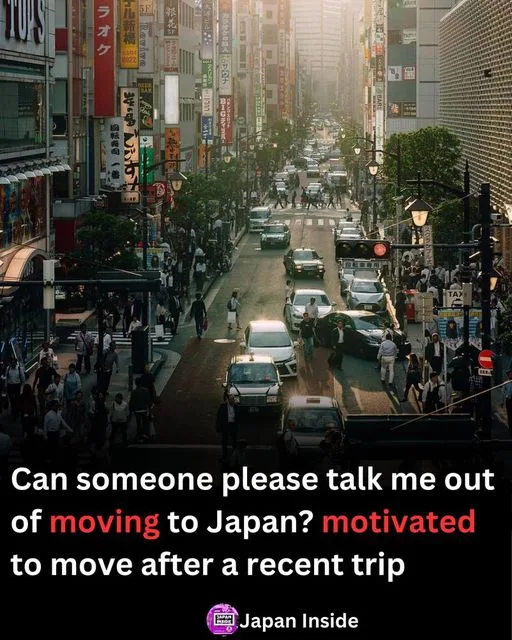A Tale of Two Worlds: An American Engineer’s Japanese Dream
In a world where the grass often seems greener on the other side, one American engineer’s recent trip to Japan has left them standing at a crossroads, contemplating a life-changing decision. After experiencing Japan for just a few weeks, this visitor from the United States found themselves captivated by a way of life that seemed to address many of the frustrations they faced back home.

The stark contrasts were immediately apparent. Where the U.S. often feels car-dependent, Japan offered a robust public transportation system that made getting around effortless. The quiet, considerate atmosphere in Japanese cities stood in sharp contrast to the cacophony of American urban life.
Even simple pleasures, like finding high-quality goods at reasonable prices, took on new meaning in a country where craftsmanship still seems to be valued over mass production.
But it wasn’t just the material comforts that left an impression. The visitor found themselves exhaling a breath they didn’t know they were holding, as a pervasive sense of safety enveloped them. The anxiety that often accompanies walking alone in American cities melted away, replaced by a newfound freedom to explore without fear.
The healthcare system, too, presented a stark difference. In Japan, the prospect of a medical emergency didn’t carry the same dread of potential financial ruin that it does in the United States. This peace of mind alone seemed worth its weight in gold.
Yet, our protagonist is not naive. They recognize that their few weeks as a tourist might have painted an overly rosy picture. The reality of daily life as an expat in Japan could be quite different from the idyllic vacation experience. With this in mind, they’ve hatched a plan.
Over the next 3-5 years, this engineer intends to lay the groundwork for a potential move. They’ve secured a position with a major Japanese automaker in the U.S., hoping to leverage this for an internal transfer to Japan.
Simultaneously, they’re embarking on the challenging journey of learning Japanese, aiming for N2 or even N1 proficiency before making the leap.
Commenters Opinions
But is this dream of a new life in Japan realistic, or simply a case of the “grass is greener” syndrome? The comments on the original post offer a mix of encouragement and caution.
As one user pointedly remarks, “Living here versus being a tourist is a completely different experience.” This sentiment is echoed by many who have made the move, urging our dreamer to consider the realities of day-to-day life in Japan, including the work culture and the challenges of being a foreigner in a homogeneous society.
Others, however, are more optimistic. One commenter notes, “If you get an in with a company transfer (Honda? Toyota?), you’ve basically jumped over what’s possibly the biggest hurdle to getting into Japan.” This suggests that our protagonist’s strategy of working for a Japanese company in the U.S. first could indeed be a smart move.
The financial aspect is another crucial consideration. While the visitor noted that goods seemed reasonably priced in Japan, the reality of lower salaries can’t be ignored. As one user puts it, “Keep in mind even though prices are generally cheaper, your salary will be much lower. That being said, Japan offers an excellent standard of living even if you’re not making that much.”
As our American engineer stands at this crossroads, weighing the pros and cons of such a monumental life change, their story resonates with many who have dreamed of starting anew in a foreign land. It’s a reminder that while the grass may indeed be greener on the other side, it still needs tending – and that the view from afar can be quite different from the reality on the ground.
Will this dream of a life in Japan materialize into reality? What do you think?
To see the full post and all comments, visit the original thread on Reddit’s r/movingtojapan subreddit.